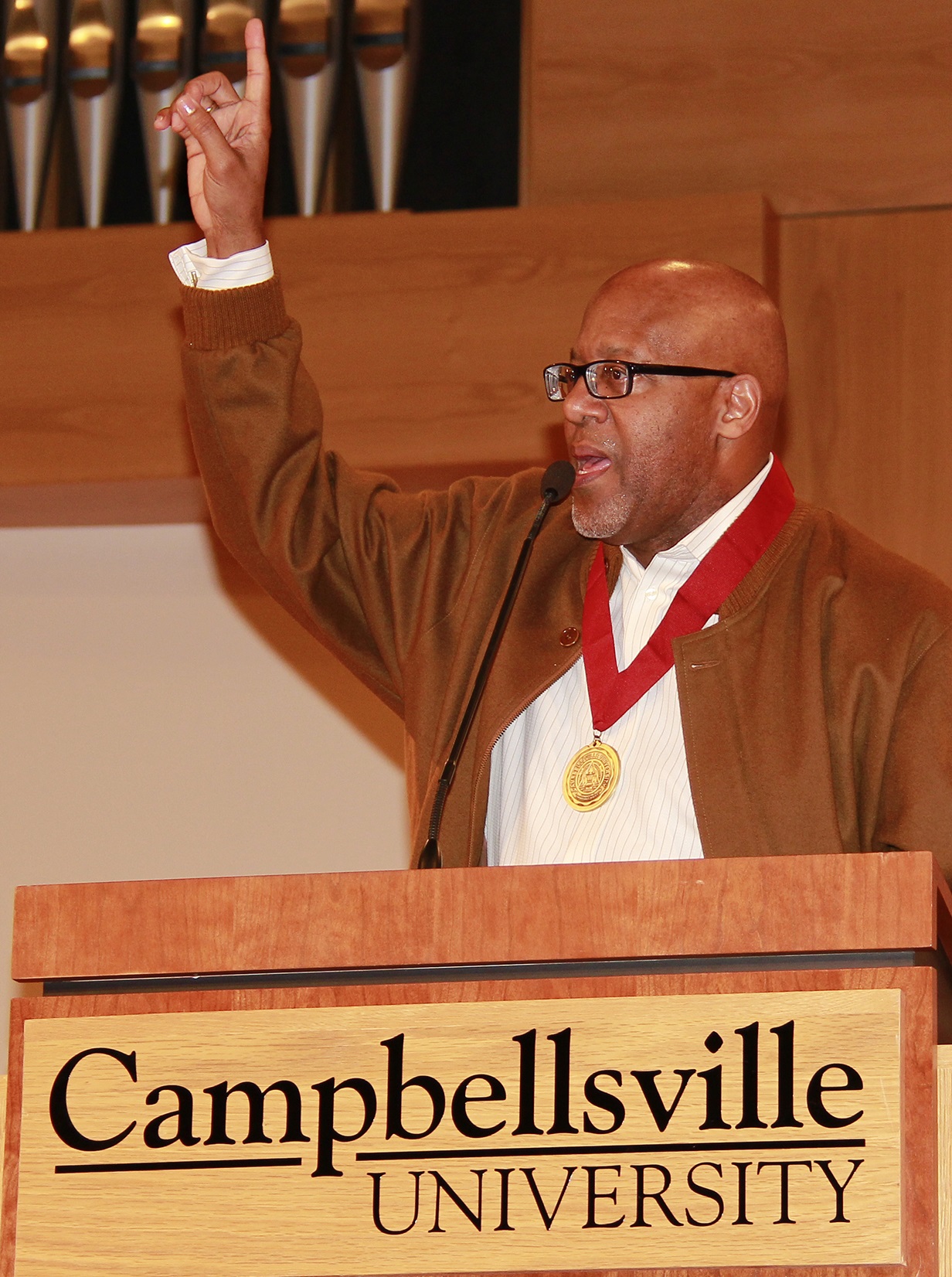By Bob Allen
Economic inequality is a “tool of separation” that continues to divide races in America 150 years after slavery, an African-American Baptist leader said in a recent lecture at Campbellsville University.
 Stephen Thurston, former president of the National Baptist Convention of America Inc., described the gap between rich and poor as “the fundamental foundation for many of the inequities that we face in this day and time” in an Oct. 15 chapel address, part of a Dialogue on Race series launched at the historically white Baptist school in 1999.
Stephen Thurston, former president of the National Baptist Convention of America Inc., described the gap between rich and poor as “the fundamental foundation for many of the inequities that we face in this day and time” in an Oct. 15 chapel address, part of a Dialogue on Race series launched at the historically white Baptist school in 1999.
“The wealth gap between ethnicities here in America continues to widen,” said Thurston, senior pastor of New Covenant Missionary Baptist Church of Chicago for 35 years. “Those who have — who are identified as being in the 1 percent, or 2 percent whoever you listen to — here in America continues to breed economic racism.”
Thurston said most people believe the driving force behind pre-Civil War slavery was man’s inhumanity toward man, but those who study it closely “also find that slavery was fueled by economic inequities and injustice that gave the slave owners free labor from millions of Africans who were brought to this country in slavery.”
Thurston said he doesn’t think real equity for the races in the U.S. is possible until the wealth gap is narrowed or closed. He prescribed what he views as the proper Christian attitude toward wealth in the New Testament story of Zacchaeus the tax collector, who after recognizing his sin promised, “I’ll give half of my possessions to the poor, and if I have cheated anybody out of anything, I’ll pay back four times as much!”
“Does Christ really live in you?” Thurston closed his message. “That’s the question we raise, and then we raise it to every mayor in every city, every governor in every state, every Congress man and woman in Washington, D.C., every senator, both male and female in Washington, D.C., and whoever sits in the most powerful seat in the whole world, the president’s seat of the United States of America.”
During the chapel service, Thurston received Campbellsville University’s 2014 Leadership Award recognizing individuals for “servant leadership,” a core value of the Christian institution that recently loosened ties to the Kentucky Baptist Convention.
The Dialogue on Race series had its genesis in 1998 with an initial dialogue between black and white pastors, and in planning with the Kentucky Commission on Human Rights. Though independent of a national dialogue on race promoted by the White House and U.S. Department of Education, university officials decided to join the national effort with an inaugural observance during the first week of October in 1999.
“Communication is the key for understanding in our global society,” said Beverly Ennis, an associate professor of education in charge of the Dialogue on Race for the first time this year, following the 2013 retirement of Mary Wilgus, professor of history and dean of the College of Arts and Sciences.
